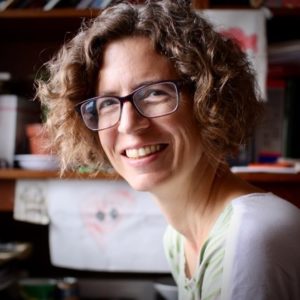Novel lignocellulose fractionation process for high purity lignin, hemicellulose and cellulose valorisation into added value products
A consortium of 12 partners from research and industry from 8 different countries sets out to develop the new generation of sustainable 2nd generation biorefineries in a 36-month project funded by the Bio-Based Industries Joint Undertaking (BBI JU) under the EU’s Horizon 2020 program.
Addressing the challenges of 2nd generation biorefineries
2nd generation biorefineries convert renewable, plant-based lignocellulosic biomass into energy and other beneficial chemical products. While they clearly open a promising path towards a less fossil-dependent, more sustainable future, 2nd generation biorefineries are currently held back by the challenges arising from the nature of their feedstock. The disruption of the highly complex structure of lignocellulose and the efficient separation into its three main components, cellulose, hemicellulose, and lignin, is technically demanding, and most current methods either require high energy consumption and are far too expensive to be implemented on large scale, or they rise environmental concerns. As a result, most 2nd generation biorefineries concentrate on one of these components and do not exploit the full potential of the feedstock.
A proposed paradigm shift for the complete value chain
FRACTION will demonstrate that multiple renewable chemicals and materials, such as polymers and resins, can be produced from lignocellulosic biomass in a sustainable way and at a competitive price. To achieve this ambitious goal, FRACTION will use a novel process, based on the green solvent γ-valerolactone (GVL), to break up and fractionate the lignocellulose. GVL is a very efficient solvent, but generally too expensive for large-scale use. FRACTION overcomes this hurdle by fully recycling the GVL in the process. But FRACTION will not stop there. The project will develop technologies to further process the three individual components obtained in the fractionation of the biomass. On the one hand, we will produce high-quality cellulose for the pulp and paper industry. On the other hand, the other two components, hemicellulose and lignin, will undergo further procedures to turn them into high added-value products. Finally, we will test the use of these sustainable materials for products such as insulation foams and adhesives. We will test different types of biomasses as feedstock, to make the process as flexible as possible. Biorefineries of the future should be able to use locally available biomass to facilitate logistics and avoid unsustainable supply chains. Our vision is to provide a roadmap towards integrated biorefineries that exploit the synergy between the forestry, pulp & paper, and agro-food sectors on the one side and the chemical and fuel industries on the other side.
Preparing novel scientific developments for future industrial application
Despite being primarily a research project, FRACTION aims to go beyond a demonstration of technical feasibility. The project also includes detailed analyses and simulation work to demonstrate that all processes are sustainable and economically viable. The project’s aim is to develop a process that, after the three years of project execution, is ready for scale-up to industrial application. The consortium is formed by a unique group of small and large enterprises and academic institutions, and other industrial stakeholders will be engaged in the project through workshops to spread the word and gather feedback about the industries’ needs and demands.

Nicole Doelker is a project manager at the Institute of Catalysis and Petrochemistry of the Spanish Council for Scientific Research (CSIC) in Madrid, where the group that coordinates FRACTION is located.